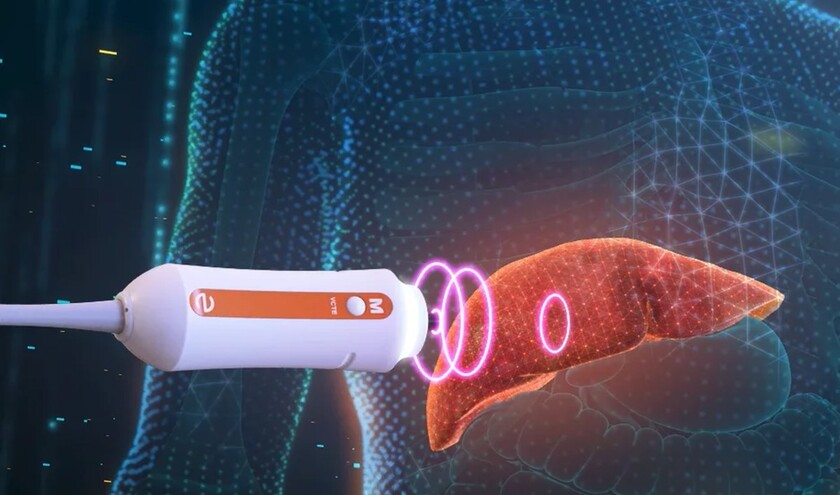The number of mobile liver scanning teams has almost doubled in the past two years, with 20 roaming teams now offering scans to communities in every region of England – up from 11 when the pilot started.
Almost 113,000 people (112,831) have had a Fibroscan of their liver and almost 8,500 (8,470) have been referred on for vital liver cancer checks since the programme began.
The on-the-spot scans check for cirrhosis or advanced fibrosis, which increases the risk of liver cancer. If liver damage is detected people are referred on for further tests, helping to catch cancers earlier and ensuring people can get the right treatment and support.
The mobile trucks move around different areas offering checks in GP practices, recovery services, food banks, diabetes clinics, sexual health clinics and homeless shelters to perform quick, non-invasive scans.
Some areas have also taken the scanning vehicles to football matches, workplaces and outside supermarkets, making it as convenient as possible for people to get tested.
NHS teams delivering the scans are working closely with local community and charities to identify people most in need of tests and support, and some have also partnered with GP practices to scan people with conditions including type 2 diabetes and obesity.
Patients found to be at an increased risk of developing liver cancer following a Fibroscan are referred for further testing in a hospital clinic where they might be put on a liver cancer surveillance programme.
In some areas, peer support workers who have lived experience of liver disease are also offering support to help people attend appointments.
People who are deemed at low risk of liver cancer or cirrhosis will be provided with information about their level of risk and referred to their GP if needed.
Latest figures showed the NHS hit the Faster Diagnosis Standard with 76.8% – or 218,463 people – having cancer ruled out or diagnosed within 28 days, the highest June since the standard was introduced. Over 53,000 patients also started treatment for cancer within 31 days.
NHS national cancer director Professor Peter Johnson said: ‘This programme has seen thousands more people referred for important further tests, allowing them to get vital treatment sooner alongside the support they need from the NHS to lead healthier lives.
‘It's a great example of the health service increasing its focus on prevention, as set out in the 10-year health plan.'
Public health and prevention minister, Ashley Dalton, said: ‘This expansion of NHS mobile liver scanning teams represents exactly the kind of preventative healthcare approach this government is championing through our 10-Year Health Plan.
‘By taking these vital checks directly into communities – from GP surgeries to food banks, football matches to homeless shelters – we're ensuring that no one is left behind when it comes to early cancer detection.'



